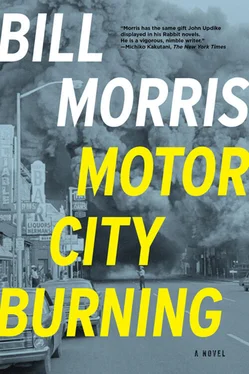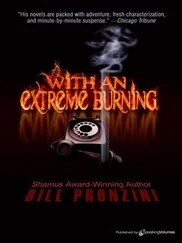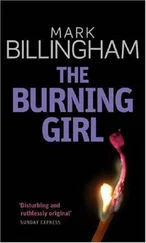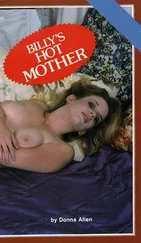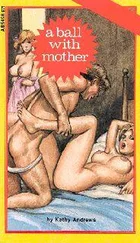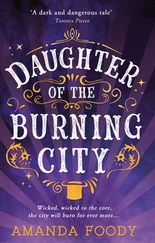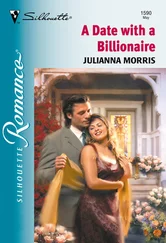“That buildin just past the left corner a the hospital. The one with the tank in front a it. . three, four floors up. . a woman standin in the window, lit up like a motherfuckin Christmas tree. Y’all see it?”
“Yeah, I see it,” Wes said.
“I see it,” Willie said.
What he saw was a dark silhouette — a woman in a dress — lit from behind. The silhouette wobbled and came to rest in the cross-hairs. Willie’s face was wet and suddenly he felt cold. He waited. The shape didn’t move. He could hear sirens in the distance, the chatter of automatic weapons fire. He felt for the trigger and held his breath, the way his brother had taught him to do in the woods outside Tuskegee.
“All right, muthafuckas,” Clarence said. “This is it. We takin the honky bitch down together. On the count a three. One. .”
The woman moved half a step to her left and Willie’s cross-hairs moved with her. He was steady as a stone.
“Two. .”
A doubt entered Willie’s mind. This was no Guardsman or cop in the cross-hairs. It was a civilian. A woman. Somebody’s wife, maybe somebody’s mother. At this distance it wasn’t even possible to tell for sure if she was black or white. No—
“Three!”
Clarence’s rifle went off first, a terrifying jolt. Then, a fraction of a second later, the gun to Willie’s left boomed. In the instant he decided he was not going to squeeze the trigger, he felt the Remington kick into his shoulder. The woman had disappeared from the window. Willie felt sick. What just happened?
“I got the bitch!” Wes shouted over the ringing in Willie’s ears. “I fuckin got the bitch!”
“The fuck you did,” Clarence shouted back. “ I got the bitch!”
“Fuck you, nigger!”
“No, fuck you !”
As their ecstatic shouting went back and forth, Willie kept looking at the window through his scope. The woman was still gone. Suddenly the window went dark. Someone started shooting from inside the building, then tracer fire started pouring from the street into the building.
Peering over the edge of the roof, Clarence said, “Here comes a po-lice. Time to split, my brothers.”
They hustled down the dark stairs and into Wes’s apartment. He drew the curtains and lit a candle and put it on the floor. Willie’s hands were shaking as he wiped down the Remington and handed it to Wes and watched him tuck it into the duffel bag. Then he watched Wes wipe down Clarence’s gun — a 7.62 millimeter Garand with a powerful Redfield scope that magnified objects to ten times their actual size. No wonder crazy drunk Clarence had been able to spot so many targets. Then Wes wiped down his own gun, a Winchester Model 70 with a Starlight infra-red scope. The murder weapon. When all three guns were zipped inside the duffel bag, Wes stowed the bag in the space he’d hollowed out under the linoleum floor in the kitchen.
And now, riding the bus out Woodward, Willie finally knew how his story ended. He got off the bus at Tuxedo Street and hurried toward Octavia’s building. He flew down the sidewalk, so light he thought he might float away. He had gotten away with helping his brother get away with murder, and he didn’t regret it. If Wes wasn’t innocent, he was a long way from guilty. Willie had gotten rid of his pain and his shame and his rage — those things he could not live with — and the stone of guilt in his guts was finally gone. He hadn’t wanted that woman to die, and he hadn’t killed her. He was free for the first time in his life. He had no unpaid debts, he had no scores to settle, and he no longer had anything to fear from any man.
THE WORLD SERIES BETWEEN THE TIGERS AND THE CARDINALS opened on Oct. 2 in Busch Stadium in St. Louis. Late that morning Anthony Capriati, the dapper little Wayne County prosecutor with watered hair, red galluses, and a loud paisley necktie, told Doyle and Jimmy Robuck something they already knew. He, Capriati, was not going to press charges in the Helen Hull case, not even weapons charges.
“You boys haven’t got shit and we all know it,” Capriati told them. “Even if you go drag Wes Bledsoe back from Saigon or Singapore or wherever the hell he is, you still haven’t got enough to get him to cop to Man One because his fingerprints aren’t on the murder weapon. They’re on a beer can. Sure, you might be able to prove he sold the murder weapon, but that doesn’t mean he was the one who fired the fatal shot. And he might tell you a completely different story from the one his brother told you about the rooftop — and be able to back it up. And you think there had to be a third person on the roof because you’ve got someone else’s prints on the murder weapon, but we all know that a hundred people could’ve handled that gun in the fifteen months since the shooting took place.”
Doyle managed to get in two and a half words. “But Mayor Cav—”
“Don’t start in about Jerry Cavanagh again. I don’t give a rat’s ass how bad Hizzoner wants this thing to go down. I’m up for re-election next month and I’m not taking on a sure loser. Especially not one with this much visibility. Thanks for stopping by, gentlemen.”

Doyle drove to the Harlan House because he wanted to break the news to Henry Hull in person. As always, the door to Room 450 was ajar. But instead of the familiar clutter, Doyle was surprised to find tidy stacks of cardboard boxes, bare walls and a spotless coffee table. There were two large suitcases in the corner by the little refrigerator. Henry was sitting alone on the sofa staring at the television set.
“This is terrible!” he moaned when Doyle knocked and entered the room.
“Listen, Mr. Hull. I just want you to know how sorry I—”
“The Cards just scored three runs off McLain — and Gibson’s already struck out twelve of our guys!”
Doyle looked at the television set. The volume was turned all the way down and Ernie Harwell’s voice was coming out of a transistor radio on the coffee table. The grass in sparkling new Busch Stadium looked even better than the lawn in front of Doyle’s brother’s house. He watched as Willie Horton let a called third strike zip past his kneecaps.
Ernie Harwell didn’t even try to hide his disgust. “Willie just stood there like a house by the side of the road and watched that one go by. Thirteen strike-outs now for Gibson.”
“Thirteen!” Henry cried.
“Mr. Hull. . ”
“Have a seat, Frankie.” Henry patted the sofa, and Doyle sat next to him, facing the television set. “You don’t gotta tell me how it went with the D.A. I had it figured out soon as you told me about having to let that Bledsoe fella go.”
Doyle told him about Capriati anyway. Then they watched the game for a while, not talking. The Tigers looked like a bunch of scared Little Leaguers — or maybe Bob Gibson really was that good. During the seventh-inning stretch Henry said, “Look in the fridge, Frankie. Should be some beer in there. Grab us a couple. I need one.”
Doyle opened the refrigerator. It contained half a bag of carrots and three cans of Budweiser. He took two. “Budweiser?” he said, wrinkling his nose as he handed a can to Henry and popped one for himself. “Isn’t this swill from St. Louis?”
“Quit yer squawkin. It’s beer and it’s cold.” Doyle could tell he appreciated the ribbing. “Cheers,” Henry said. They tapped cans as Doyle returned to the sofa.
After a while Henry put his hand on Doyle’s knee and said, “You did the best you could, Frankie, you and Jimmy both. The whole department did, and I want you to know how much I appreciate it. You never gave up. Now it’s time to let it go. It wasn’t meant to be. Case closed.”
Читать дальше
